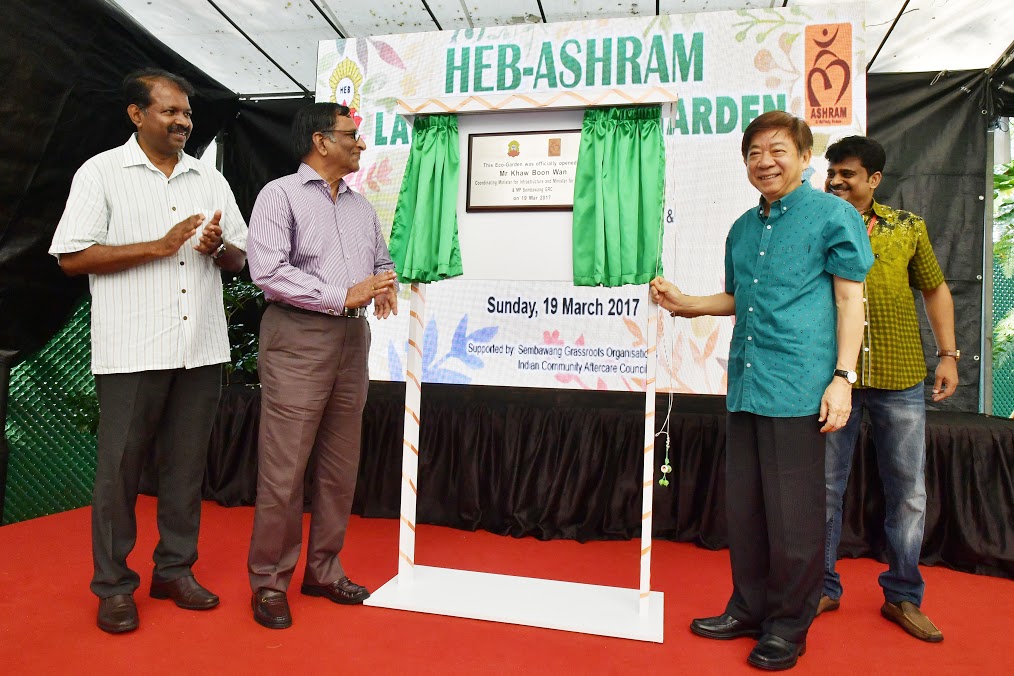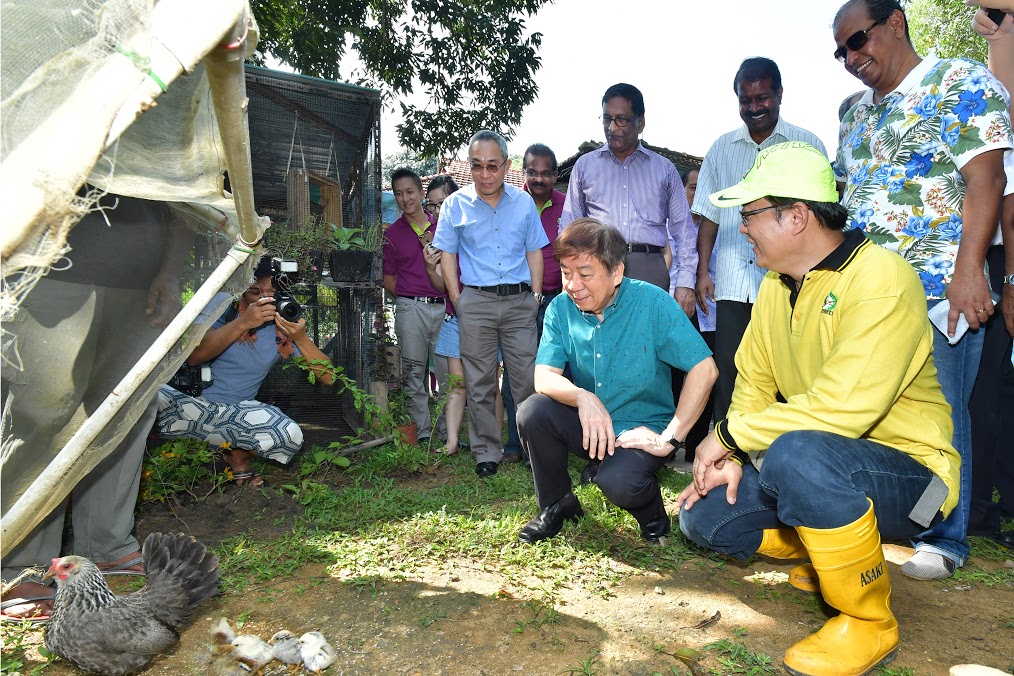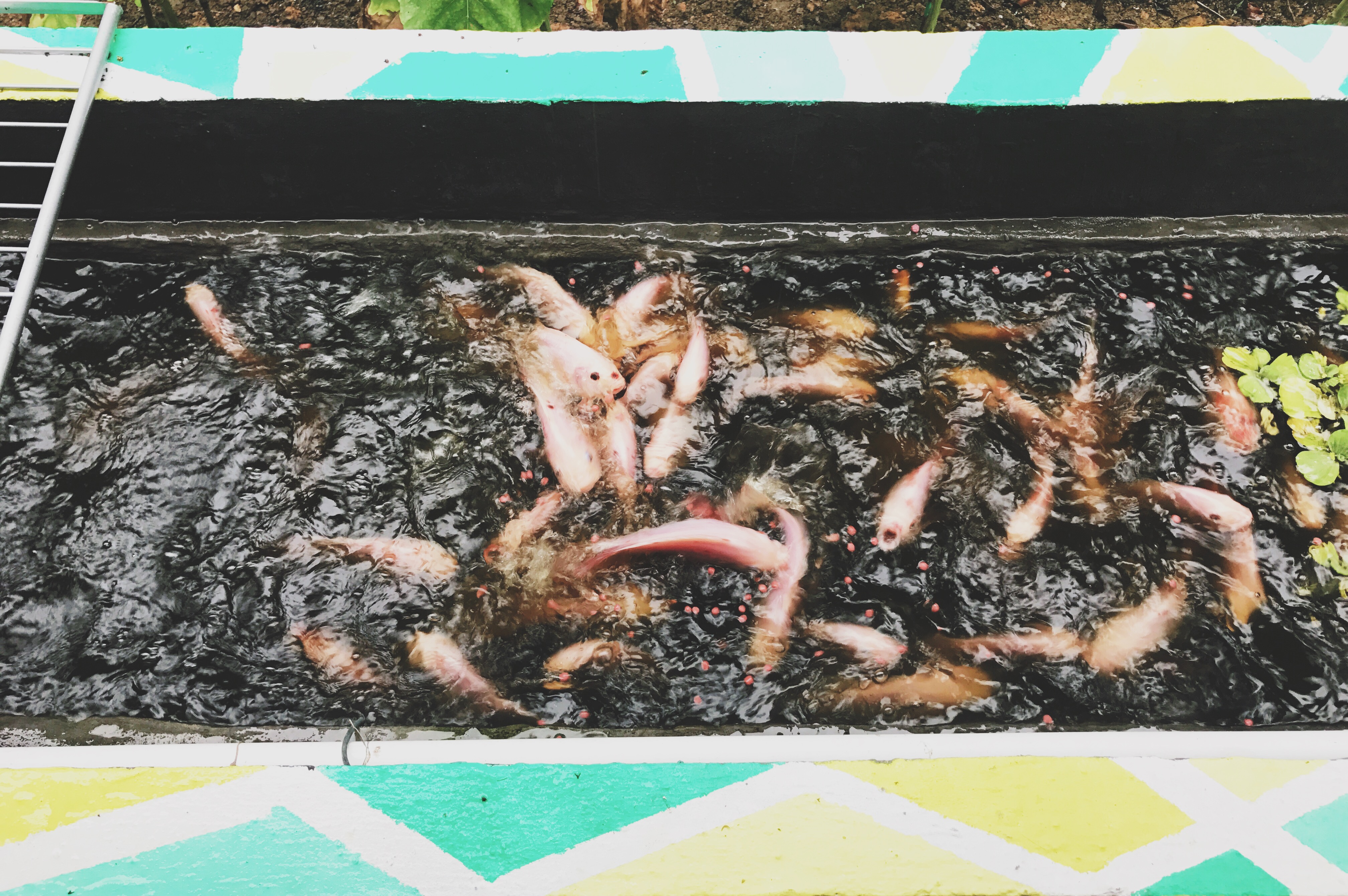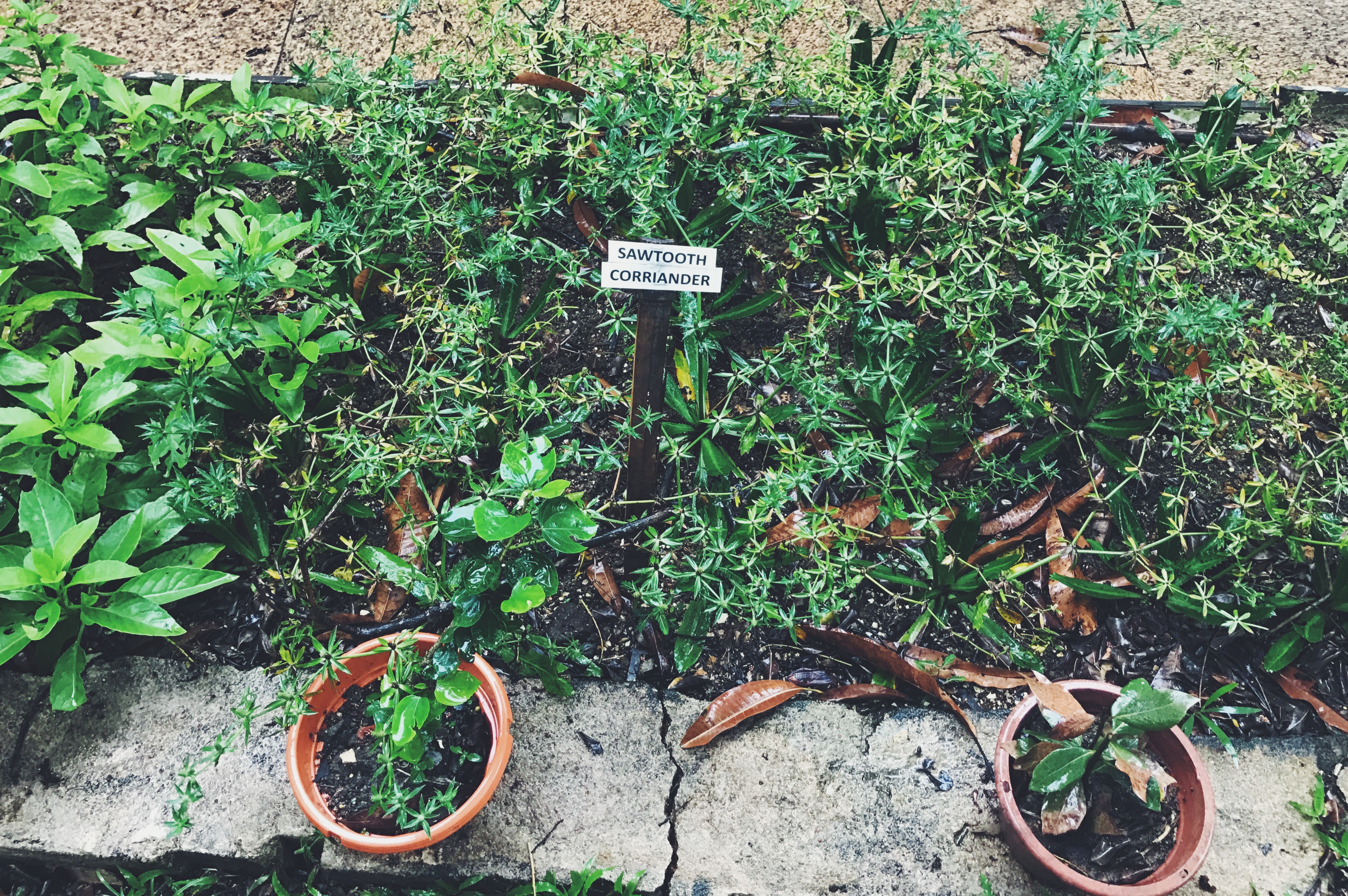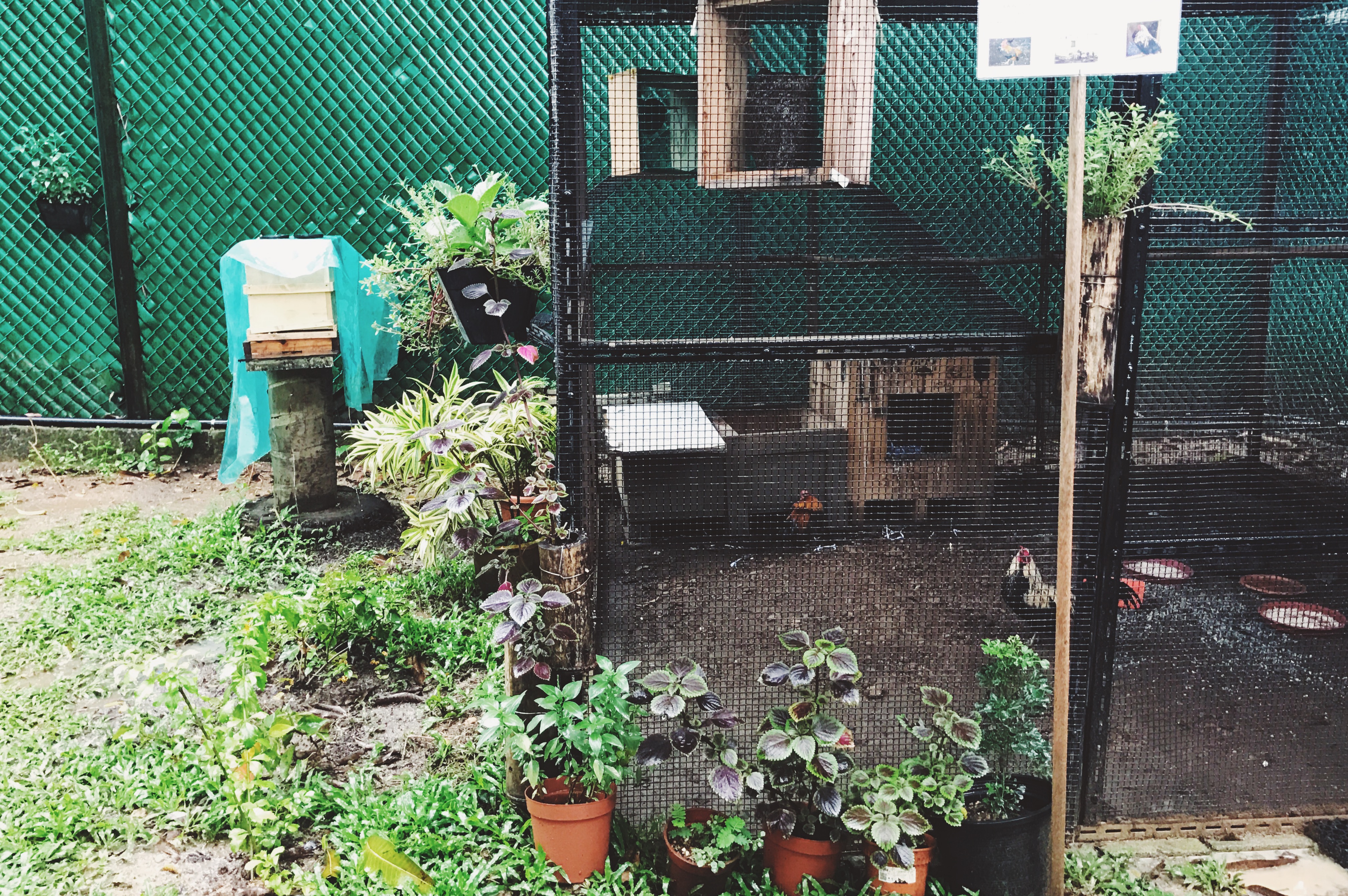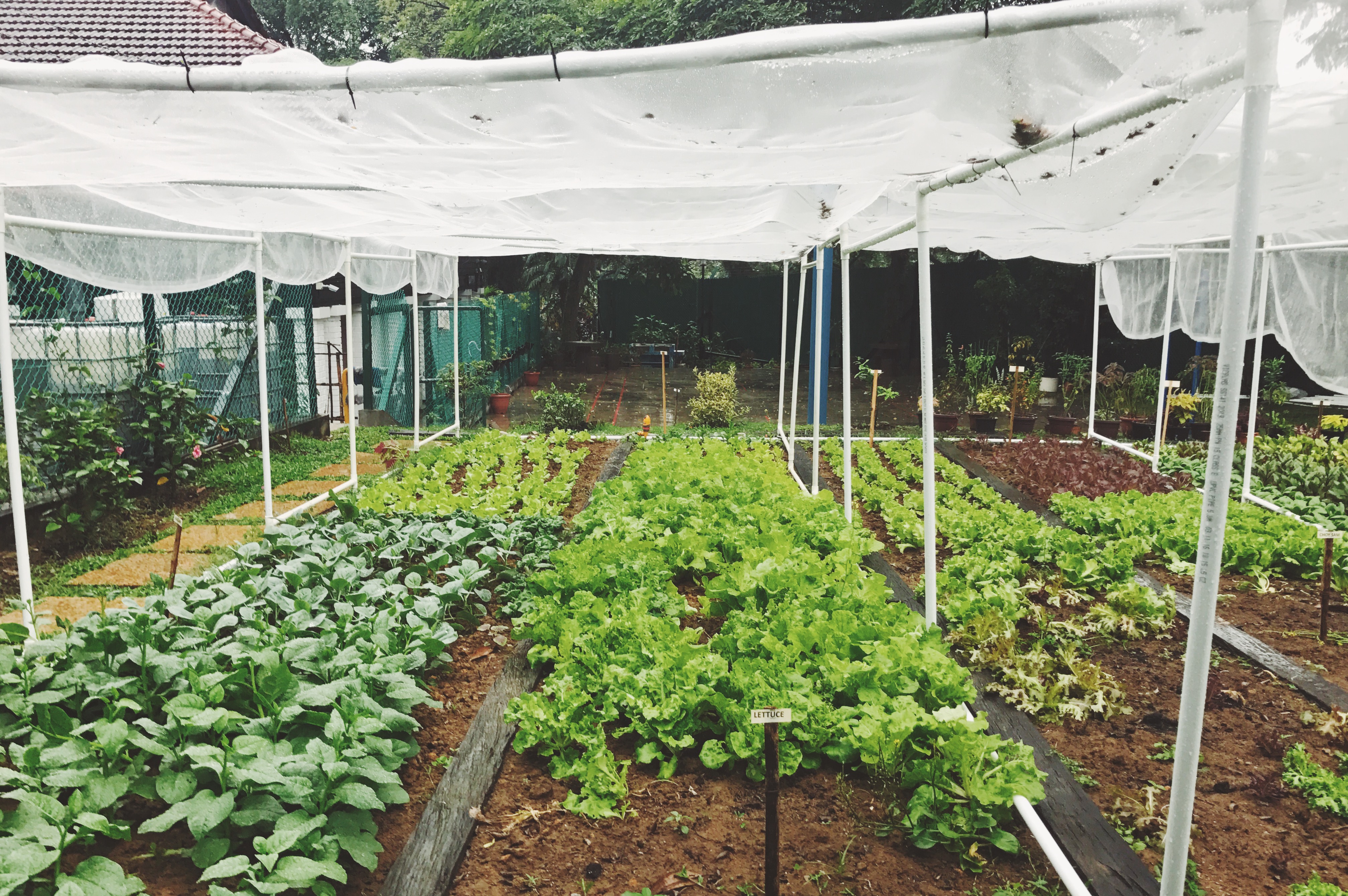Tucked away amid the lush green landscapes of the Sembawang Road area is the Hindu Endowments Board (HEB) Ashram Halfway House.
The eco-garden that resides within its compounds is a buzzing ecosystem. There is a fishpond in which Tilapia is bred – for food, no less; a few fat hens and roosters laze around a wooden chicken coop, while nine chicks stumble around curiously but never straying far from the mother hen. Rows and rows of vegetation lie neatly alongside each other, and there were little signposts with familiar names – kang kong, ladies finger, spinach, and so on. There is also a compost bin to regenerate waste into manure; black soldier flies were used to decompose the product, and its lavas were fed to the fish and chicken.
Launched by the 50 or so ex-offenders and volunteers at the Halfway House, the eco-garden took them eight months to set up. It is roughly the size of half a football field. This garden is the brainchild of Dr Narayanan Ganapathy, who is an Associate Professor of Sociology at National University of Singapore. He is also the current Chairman of the HEB Management Committee.
Transport Minister Khaw Boon Wan, who is also the Minister of Parliament for Sembawang GRC, presided over the opening ceremony on the morning of March 19, 2017. An interesting thing that happened was that, “a day before the Minister was due to visit, one of the hens hatched her nine chicks. The Minister was very happy to see that,” shared K Subramaniam, Head of Ashram.
On why the Halfway House has decided to use horticulture as a method of therapy, Subramaniam explained that gardening has therapeutic elements which can help to develop responsible individuals among those who participate. It was also a way to fully occupy the time of the residents – gardening work drains the unwanted and negative energies and thoughts that they might have.
Eco therapy is different from the traditional talk therapy in the sense that it is practice oriented, rather than theoretical approach. In talk therapy, persons are engaged in open discussions to guide them to change their negative thoughts to a positive one.
However, in eco-therapy, persons are engaged in work to complete a given task. Their connection with nature would give the persons involved a sense of accomplishment and fulfillment. “It is the feeling of seeing things grow, through their sheer hard work, that will bring them enjoyment,” said Subramaniam, as he brought us on a tour of the eco-garden.
So how do the benefits of eco-therapy translate into something that can help the residents on their journey to recovery and back to society? “It will have a rub-on effect on an individual's aptitude and attitude vis-a-vis the ethics and morals in his daily life. They are more likely to be mellowed and balanced individuals in their communication and approaches with others in their daily life,” explained Subramaniam.
As for the Halfway House’s future plans, they are currently exploring the feasibility of installing solar panels on their rooftop to generate power. The structure of the building are is suitable for such equipment, and they are awaiting approval from relevant agencies for this project. The Halfway House is in discussion with a group of university students who are keen to work on this initiative.
In addition, the Halfway House has also linked up with the Youth Executive Committee (YEC) from Sembawang Constituency to collaborate with them to organise activities that will benefit our residents as well as the community.
About HEB-Ashram Halfway House
The HEB-Ashram was set up by HEB in 1999, with the help from the Singapore Corporation of Rehabilitative Enterprises (SCORE). It is a halfway house to rehabilitate and reintegrate Indian substance abusers into society.
Its residents receive emotional and spiritual guidance through a number of quality programmes. HEB-Ashram residents are encouraged to attend classes to learn more about the religion they practice and attend yoga and meditation classes for better control of their minds and bodies. They are also equipped with skills to allow them to be gainfully employed.
In addition to being taught how to be financially prudent, arrangements are made for them to embark on home-based jobs. SCORE’s job placement unit helps with securing appropriate jobs for the residents.

